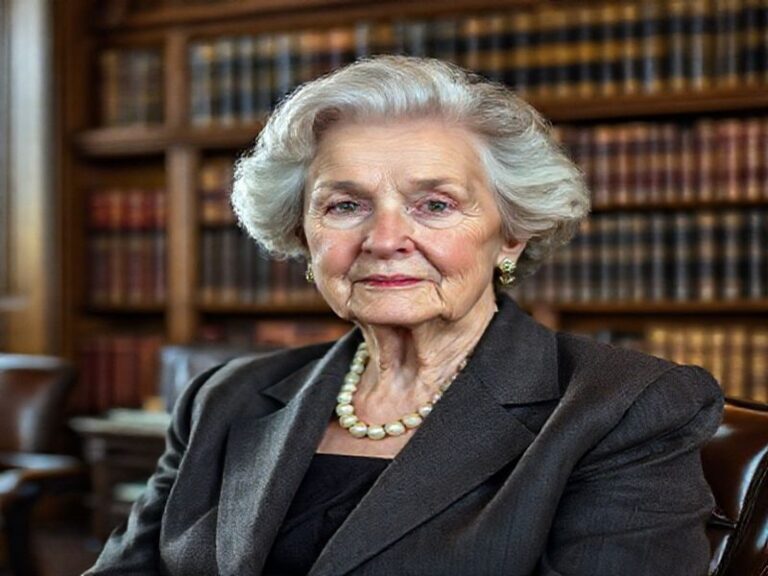Tulsi Gabbard: The Hawaiian Pivot Heard ‘Round the World – How One Democrat Became Everyone’s Favorite Contrarian
**The Hawaiian Pivot: How Tulsi Gabbard Became Moscow’s Favorite Democrat**
In the grand theater of American politics, where yesterday’s progressive darling can become today’s Kremlin-curious commentator, Tulsi Gabbard has executed perhaps the most elegant ideological pirouette since Mussolini started as a socialist. The Hawaiian congresswoman’s transformation from Bernie Sanders’ protégé to Fox News’ favorite “former Democrat” offers a masterclass in political reinvention that would make even the most seasoned Kremlinologist reach for the vodka.
From an international vantage point—preferably one with strong Wi-Fi and stronger drinks—Gabbard’s journey represents something profoundly telling about America’s bipolar political ecosystem. Here was a woman who once championed Medicare for All and climate action, now sharing speaking engagements with the same conservative figures who previously dismissed her as “Assad’s favorite Democrat.” The speed of her metamorphosis suggests either genuine ideological evolution or the political equivalent of a startup pivot when the funding dries up.
The global implications are deliciously ironic. While Washington obsesses over Russian interference in American democracy, Gabbard has become a walking, talking example of how influence flows both ways. Her appearances on Russian state media and meetings with Syria’s Bashar al-Assad—who presumably had a scheduling opening between chemical attacks—have positioned her as the unlikely bridge between anti-war progressives and isolationist conservatives. It’s diplomacy through confusion, a strategy that would make even Henry Kissinger’s head spin.
For international observers, particularly those in NATO countries nervously watching America’s political contortions, Gabbard represents the post-truth politician par excellence. She’s managed to be simultaneously too conservative for Democrats and too dovish for Republicans, creating her own political category: the anti-interventionist interventionist, the progressive traditionalist, the anti-establishment establishment figure. It’s like watching Schrödinger’s Candidate, existing in multiple ideological states until observed by a specific audience.
Her recent departure from the Democratic Party, announced with the theatrical timing of a reality show elimination, coincided beautifully with global anxieties about American reliability. European allies, already developing nervous tics from Trump’s “America First” doctrine, now witness the spectacle of a presidential candidate who managed to alienate both AOC enthusiasts and MAGA devotees. It’s a remarkable achievement in an era when political polarization typically demands picking a side and digging trenches.
The broader significance lies in what Gabbard reveals about the international order’s fragility. When a sitting congresswoman can simultaneously appeal to Hawaiian surfing communities and Russian state propagandists, we’re witnessing the collapse of traditional ideological boundaries. Her positions on foreign intervention—opposing “regime change wars” while maintaining flexibility on which dictators deserve protection—reflect a worldview that transcends the old left-right spectrum. Call it the “Axis of Inconvenience” doctrine.
For developing nations watching this spectacle unfold, Gabbard offers a cautionary tale about the perils of political purity. Her evolution from progressive champion to conservative media darling demonstrates how quickly yesterday’s revolutionary becomes today’s reactionary. It’s enough to make even the most seasoned autocrat question whether American politicians believe in anything beyond their next booking fee.
As the 2024 election cycle accelerates toward its inevitable chaos, Gabbard’s role remains deliciously ambiguous. Will she emerge as a third-party spoiler, a Fox News contributor, or simply another footnote in the encyclopedia of political reinvention? Whatever her destination, she’s already secured her legacy as the politician who proved that in America’s marketplace of ideas, even the most contradictory positions can find a buyer. The international community, meanwhile, continues watching with the morbid fascination of spectators at a particularly elaborate train wreck—equal parts horror and admiration for the sheer audacity of the performance.
In the end, perhaps Tulsi Gabbard’s greatest achievement is revealing that in our interconnected world, the most successful politicians aren’t those who stand for something, but those agile enough to stand for everything simultaneously. It’s post-ideological politics for the social media age, where contradiction isn’t a bug—it’s a feature.







